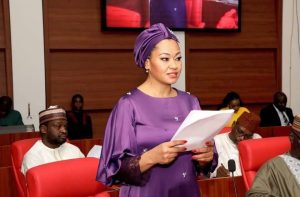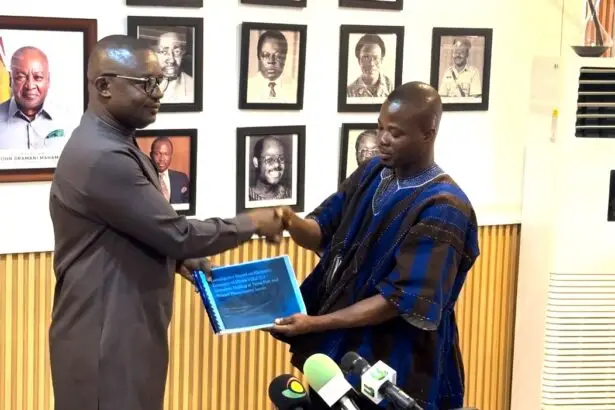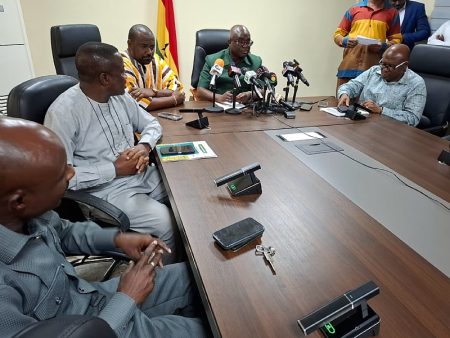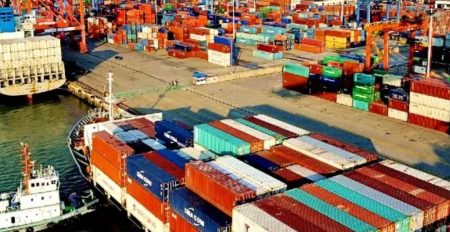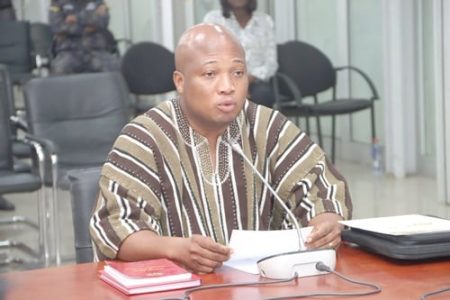Ghana’s Energy Minister, John Jinapor, has lauded the efforts of the Technical Committee on Private Sector Participation (PSP) in meticulously evaluating the prospects for enhancing power distribution within the nation. He reassured the public that the Electricity Company of Ghana (ECG) will not be sold, emphasizing the government’s commitment to a comprehensive review of the committee’s recommendations to determine the most beneficial approach. The minister highlighted the extensive stakeholder consultations undertaken by the committee, incorporating perspectives from various segments of society to chart the optimal course of action for Ghana’s power sector. Ultimately, the initiative aims to ensure a consistent and affordable supply of electricity for all citizens, underpinning national development and improving the quality of life.
Minister Jinapor meticulously clarified the nature of the three proposed models for private sector participation: Entity Concession, Multiple Lease, and Service Franchise. He underscored that none of these models entail the outright sale of ECG’s assets. Instead, ECG will retain ownership of its infrastructure, while the selected private sector partner will focus on enhancing operational efficiency and service delivery. This partnership aims to leverage private sector expertise and investment to modernize the power distribution system, reduce losses, and improve customer satisfaction, all while safeguarding Ghana’s national interests and maintaining control over its critical energy infrastructure. The proposed models aim to create a synergistic relationship where public ownership and private sector efficiency converge to deliver optimal outcomes for the Ghanaian people.
The ongoing process signifies a critical juncture in Ghana’s quest to solidify its energy security and provide reliable electricity to its citizens. The comprehensive stakeholder engagement ensures that the chosen path aligns with national priorities and reflects the aspirations of the Ghanaian people. By preserving ECG’s ownership under national control while incorporating private sector expertise, the government aims to create a robust and sustainable power distribution framework that can effectively meet the growing energy demands of the nation. This strategic approach aims to balance the need for improved efficiency and investment with the imperative of maintaining national sovereignty over critical infrastructure.
The minister’s emphasis on the preliminary nature of the current stage underscores the government’s commitment to a thorough and transparent decision-making process. The assessment by the Technical Committee represents the initial step in a broader strategy to revitalize Ghana’s power sector. The government’s meticulous approach, characterized by extensive consultation and careful consideration of the committee’s recommendations, signals its commitment to making informed decisions that serve the best interests of the nation. This approach aims to foster public trust and ensure that the chosen model aligns with Ghana’s long-term development goals.
Jinapor’s reassurance regarding the continued national ownership of ECG aims to allay public concerns about potential privatization. The government’s focus on enhancing efficiency through private sector participation, rather than outright sale, underscores its commitment to safeguarding national assets while also acknowledging the need for improved performance in the power sector. This balanced approach seeks to harness the benefits of private sector expertise without relinquishing control over critical infrastructure, ensuring that the benefits of modernization accrue to the nation as a whole.
This initiative represents a significant step towards a more robust and efficient power sector in Ghana. The government’s emphasis on transparency, stakeholder engagement, and national ownership ensures that the chosen path aligns with the long-term development goals of the nation. By carefully considering the recommendations of the Technical Committee and engaging in open dialogue with the public, the government is working to create a sustainable and reliable power infrastructure that can fuel economic growth and improve the quality of life for all Ghanaians. This strategic approach, balancing national interests with the need for modernization, positions Ghana for a future of enhanced energy security and prosperity.



